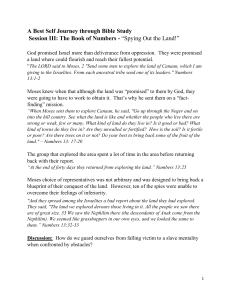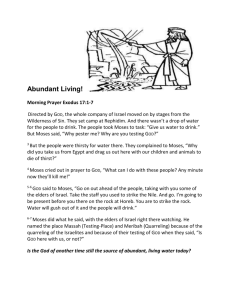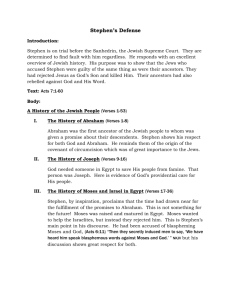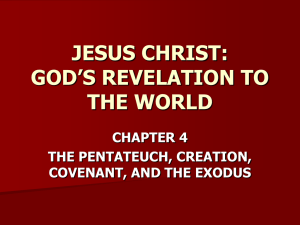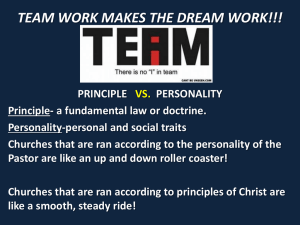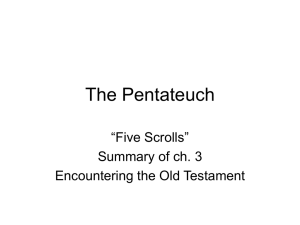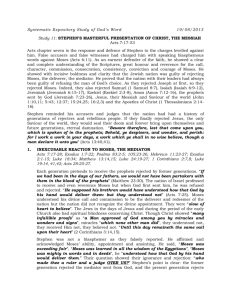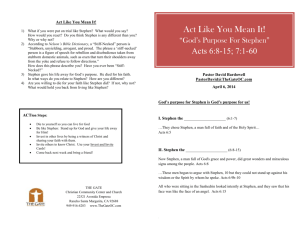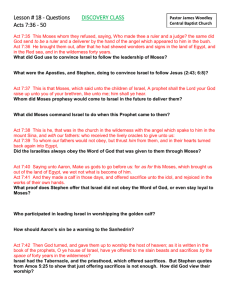Acts Week 6 - Clear Water Church
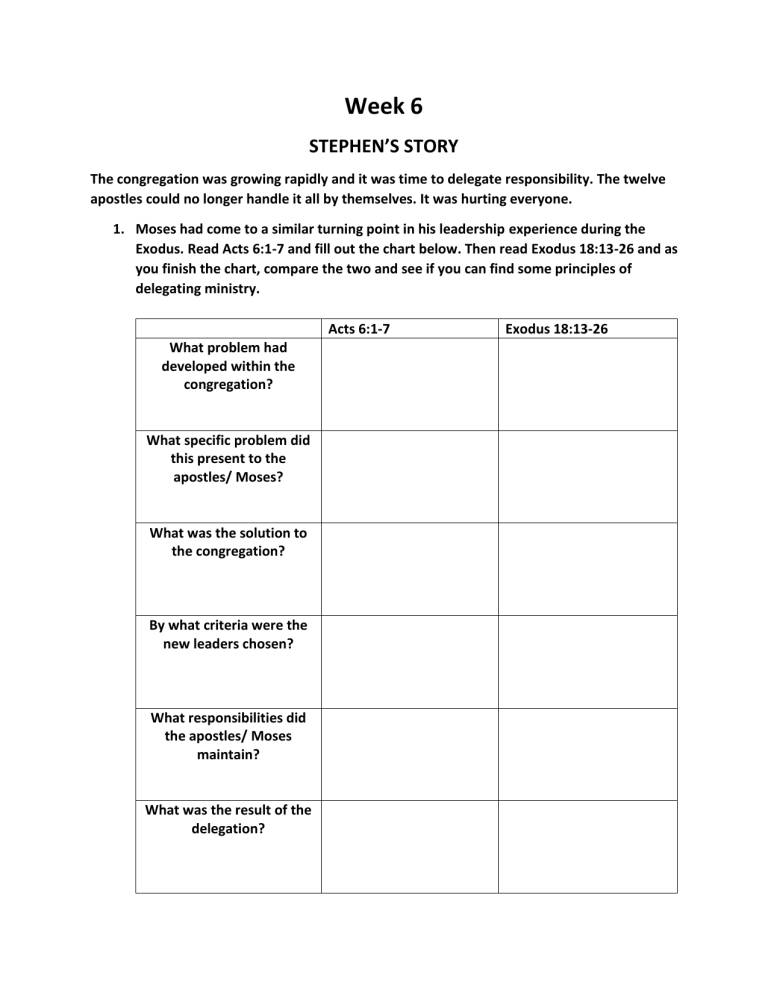
Week 6
STEPHEN’S STORY
The congregation was growing rapidly and it was time to delegate responsibility. The twelve apostles could no longer handle it all by themselves. It was hurting everyone.
1.
Moses had come to a similar turning point in his leadership experience during the
Exodus. Read Acts 6:1-7 and fill out the chart below. Then read Exodus 18:13-26 and as you finish the chart, compare the two and see if you can find some principles of delegating ministry.
What problem had developed within the congregation?
What specific problem did this present to the apostles/ Moses?
What was the solution to the congregation?
By what criteria were the new leaders chosen?
What responsibilities did the apostles/ Moses maintain?
What was the result of the delegation?
Acts 6:1-7 Exodus 18:13-26
Have you ever been involved in a church or in an organization, where there was one leader or a small group in authority, who seemed to make all the decisions and do all the work? In time they would become burned out and ineffective. They would neglect the things that they should really be focusing their attention on; while many others in the group, who are gifted to serve, would not be granted the opportunity to do so.
This is especially true in the body of Christ. We are all members of one Body, with
Christ at the head. Whenever the spiritual gifts of the members are not being used efficiently, the Body and the Kingdom of God will suffer.
The application is two-fold:
Leaders- let go of some of the control. Trust God and let others share the responsibility. Choose able people who are full of faith, and in whom the Holy Spirit is apparent.
The rest of us need to be ready and able to serve within our gifting. We should become aware of the talents, passions and gifts that the Spirit has given to us.
We should make serving the Lord through the church, or through para-church organizations, a major priority in our lives. Make yourself available!
2.
Read Acts 6: 8-15, underline every mention of Stephen or pronoun of his name. List everything you learn about him below (include v.5). a) What did the opposition accuse him of in v. 11? b) Where was he taken? Whom was he brought before? c) After the false witnesses made their accusations, the whole Council notices something peculiar about him. How is he described?
Glory!
Read 2 Corinthians 3:7-18 (The “ministry of death” mentioned here is The Law, because the judgement of sin brings condemnation).
Moses had the fading glory of the Holy Spirit coming upon him; but then the Spirit would depart and the glory would fade. Now, we who believe have the indwelling
Spirit who is poured out upon us once for all time. He is transforming us into the image of Christ!
Read verses 16-18 again. Who possesses this glory? Can you recognize the Holy
Spirit in the face of others? Can they recognize Him in you?
3.
In Chapter 7, Stephen gives one of the best summaries you will read of Old Testament history, from Genesis 12 through 1 Kings 11. We could easily do an entire Bible Study just on this chapter! Let’s just read it for now. But read with a purpose, look for the point Stephen is trying to make to the Council. I will just ask a few questions to guide you through the process. a) Read vs. 1-8.
Stephen begins with the Father of the nation of Israel. He tells of God’s faithfulness in creating that nation. Who is the man that God made the Promises to?
According to v. 4-5 what was this Promise concerning?
According to vs. 6-7, what was going to happen to Abraham’s descendants before they would be given this Land?
Did this happen in history? Where did they live in in bondage for four hundred years? b) Read vs. 9-16.
How did they get to Egypt?
c) Read vs. 17-29.
Who does God raise up to deliver the children of Israel to the Promised Land? d) Read v. 30. How much time passes in Midian as God prepares Moses for the mission to come? e) Read vs. 30-34. How does God communicate the mission to Moses?
The way that the LORD explains His motives to Moses is a great example of God’s loving-kindness toward His covenant people. He is the promise-keeping God. He knows our trials and concerns. He hears are cries for help; and He rescues us. f) Now that Stephen has set the context, he begins to make his argument.
Read vs. 35-43.
Knowing how the Sadducees revered Moses, He uses Moses as the illustration for his argument. Moses was faithful, but what does he say about the children of
Israel? g) Now he turns to a second argument against the faithlessness of Israel.
Read vs. 44-50 (note the contrast in v. 48). What point is he making here? v. 35- v. 39- v. 41-43-
They were trying to build a physical place to “house” God, while not allowing Him to come near their hearts. h) How does he make his accusation personal in verse 51?
i) What is his final accusation against the Council in vs. 52-53? j) And their reaction in v. 54? k) Read vs. 54-60.
What happens to Stephen?
How is God’s grace and power displayed?
What is the final request that Stephen makes to the Lord? Does it sound familiar?
Read Luke 23:34. Who had previously made the same request?

